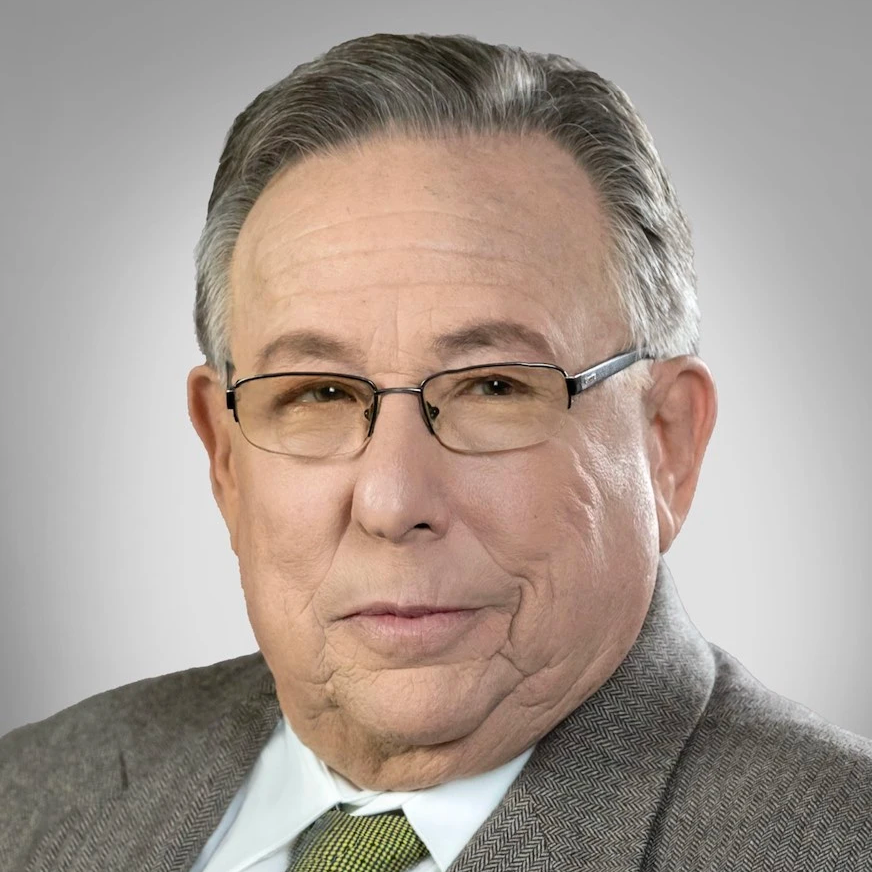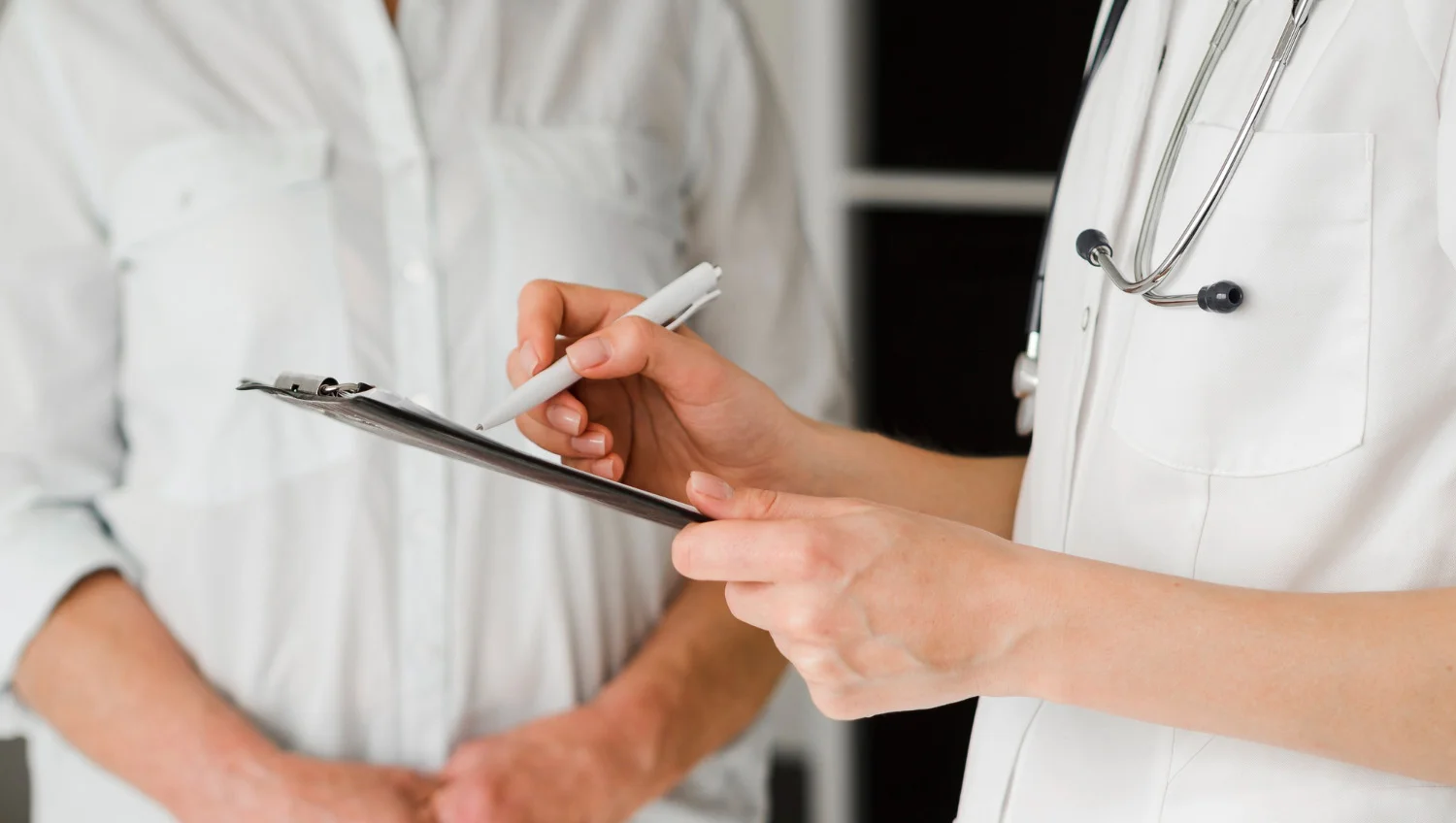How Much Do Drugs Cost?
Drugs cost anywhere between a few dollars and thousands per gram, depending on the substance. For example, carfentanil, a highly potent synthetic opioid, costs up to $2,311.8 per gram, while fentanyl prices reach $243.1 per gram. Crack cocaine, another expensive street drug, was priced at $120 per gram in 2020. The cost of methamphetamine varies widely, ranging from $20 to $500 per gram based on quality. These prices highlight the financial burden of addiction and the exploitative nature of the illicit drug trade.
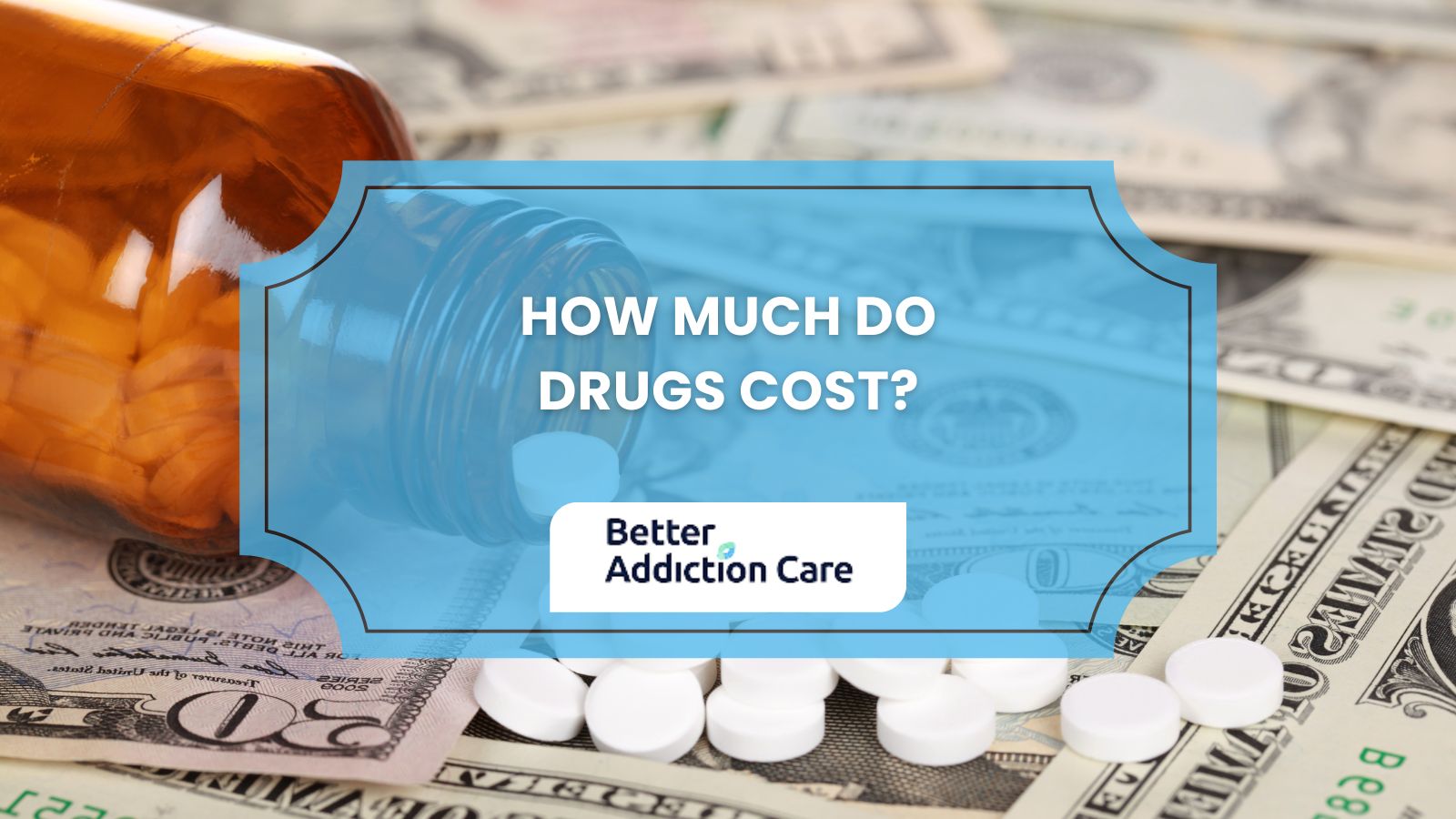
According to Sharma, A.’s 2019 study, ‘Study of family burden in substance dependence: A tertiary care hospital-based study’, 65.3% of caretakers experienced a moderate objective burden, while 74% reported severe subjective burden, with financial strain being a significant factor linked to monthly family income, expenses on substances, and the number and type of substances abused.
What Are The Most Expensive Street Drugs?
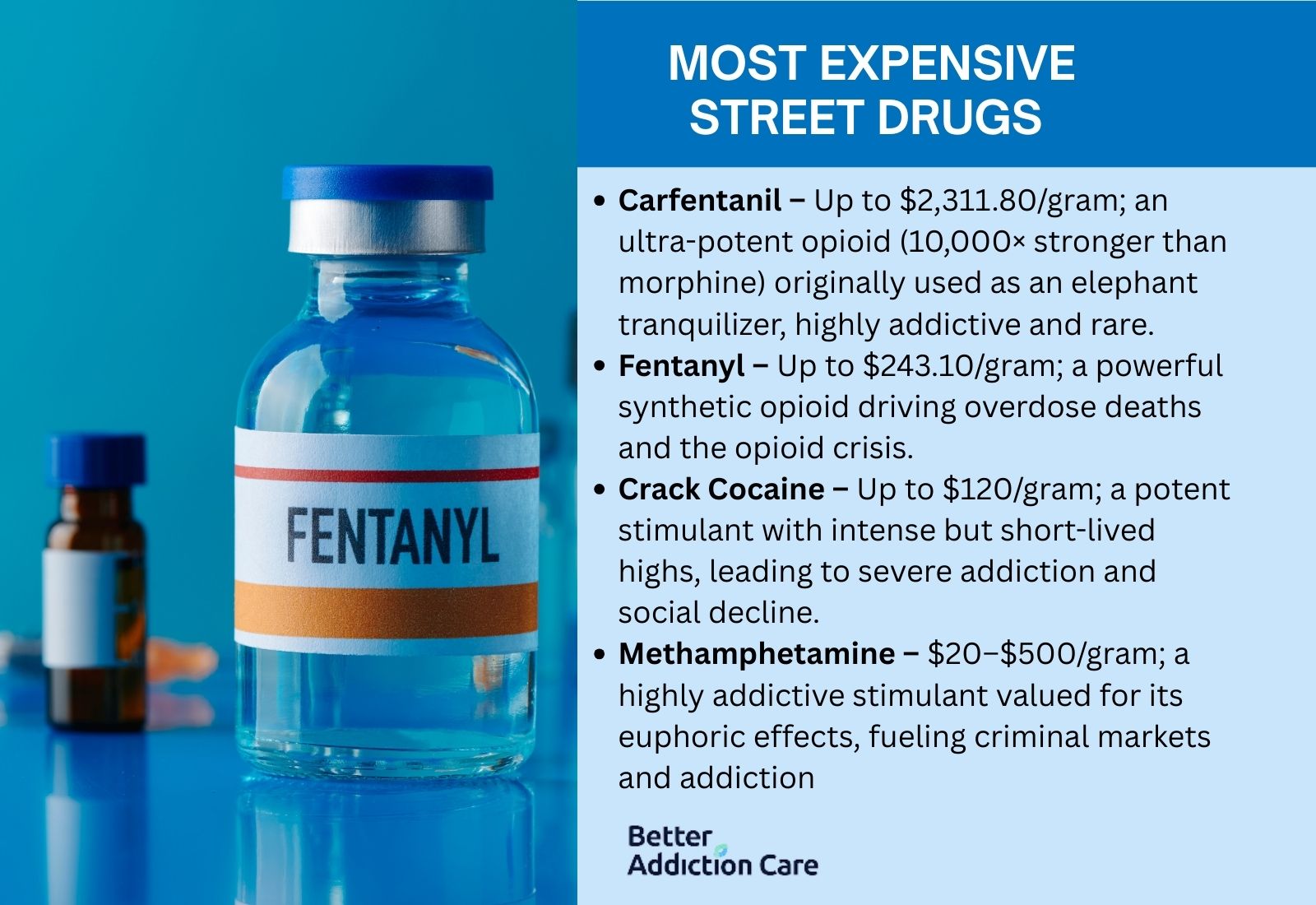
The most expensive street drugs include carfentanil, fentanyl, crack cocaine, and methamphetamine, each commanding high prices due to their potency, rarity, and devastating effects on users. These substances are not only costly but also contribute significantly to addiction and the illegal drug trade.
Here are the most expensive street drugs:
Carfentanil
A synthetic opioid originally developed for use as an elephant tranquilizer is at the top of the illicit drug hierarchy, and its cost goes up to $2,311.8 per gram for retail amounts. The extreme strength of carfentanil makes it 10,000 times stronger than morphine.
A single dosage of Carfentanil costs thousands of dollars due to its extreme rarity on the black market. Carfentanil is at the top of the illicit drug hierarchy due to its potency and the unquenchable cravings that come with addiction.
Fentanyl
Fentanyl is one of the most sought-after and costly street narcotics in the United States, even though it isn't quite as powerful as its cousin, carfentanil. Even tiny amounts of the synthetic opioid painkiller fentanyl cause lethal overdoses. Fentanyl has risen to the top echelons of the illegal drug trade due to its strength and its presence in the opioid epidemic. Fentanyl prices could go up to $243.1 per gram, according to retail listings on the crypto market.
Crack Cocaine
In the realm of stimulants, crack cocaine stands out as a potent and expensive commodity, being as pricey as $120 per gram in 2020. The process of converting cocaine hydrochloride into crack cocaine increases its potency and, consequently, its market value. The intense euphoria and short-lived high associated with crack cocaine make it a prized possession among users, despite the ruinous toll it exacts on their lives. The escalating cost of crack cocaine perpetuates a cycle of desperation and despair, trapping individuals in a downward spiral of addiction and self-destruction.
Methamphetamine
Methamphetamine, more often referred to as "crystal meth" or "ice," is one of the costliest and most highly addictive illicit substances in the United States. The price of this drug ranges from $20 to $500, depending on its quality. Many people, including users and thrill seekers, desire its stimulant effects because they cause a strong surge of exhilaration. The high market price of methamphetamine is a result of its illicit manufacturing and distribution, which enriches criminal businesses at the cost of human lives.
What Can You Do If You're Dependent On An Expensive Street Drug?
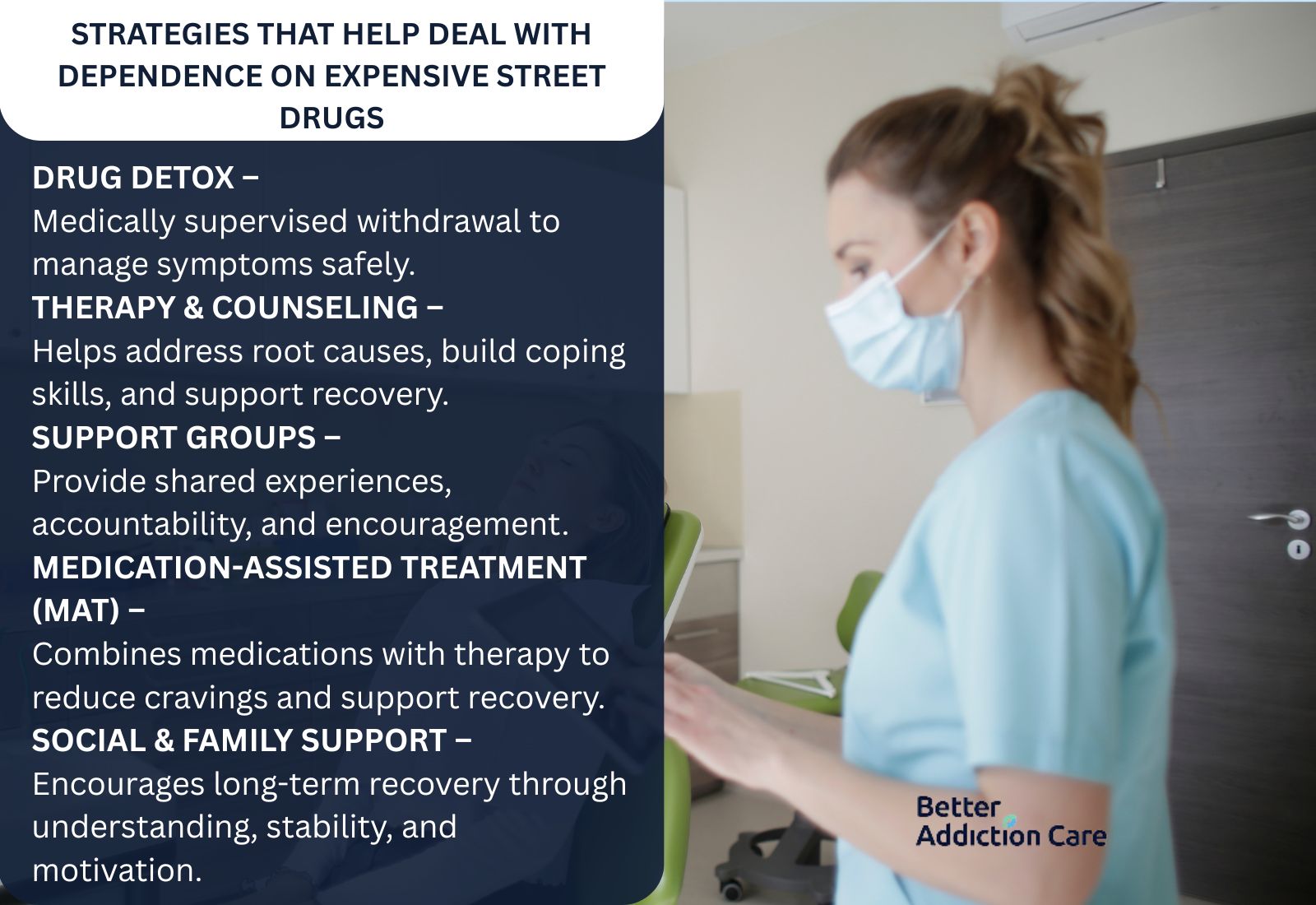
If you're dependent on an expensive street drug, drug detox, therapy and counseling, Medication-Assisted Treatment (MAT), and support groups like SMART Recovery or Narcotics Anonymous (NA) are helpful for you.
Here are the key strategies to help you if you are dependent on an expensive street drug:
Drug Detox
To properly manage withdrawal symptoms, drug detox is necessary, depending on the substance and the amount of dependency. This procedure is usually performed under the watchful eye of medical experts who administer medicine and keep tabs on the patient to maximize comfort and safety.
Therapy and Counseling
Therapy and counseling are essential components of treatment for drug addiction, providing individuals with support and strategies to overcome their substance use disorders. These approaches facilitate self-exploration, help identify underlying issues contributing to addiction, and promote healthier coping mechanisms. Through various therapeutic techniques, individuals gain insights into their behaviors and develop skills to manage cravings, improve relationships, and maintain long-term recovery.
Support Groups
Groups like SMART Recovery and Narcotics Anonymous (NA) help people overcome their addiction by bringing them together in a shared experience and holding them accountable. Connecting with people who understand what you're going through gives you strength, perspective, and optimism.
Medication-Assisted Treatment (MAT)
Medication-Assisted Treatment (MAT) serves as an effective approach for certain addictions, utilizing medications to reduce cravings, ease withdrawal symptoms, and support recovery. This treatment method enhances the overall effectiveness of recovery plans, which often incorporate therapy and counseling to address the psychological aspects of addiction. By combining medication with behavioral support, individuals experience a more comprehensive and holistic path to recovery.
Social and Family Support
Social and family support plays a crucial role in the recovery process, providing individuals with a reliable support system that fosters understanding, accountability, and encouragement. This network helps individuals navigate the challenges of recovery and reinforces their commitment to a healthier lifestyle, with family support serving as a vital component of that encouragement.
How Can Drug Rehab Facilities Help Individuals Reduce The Financial Burden Of Addiction?
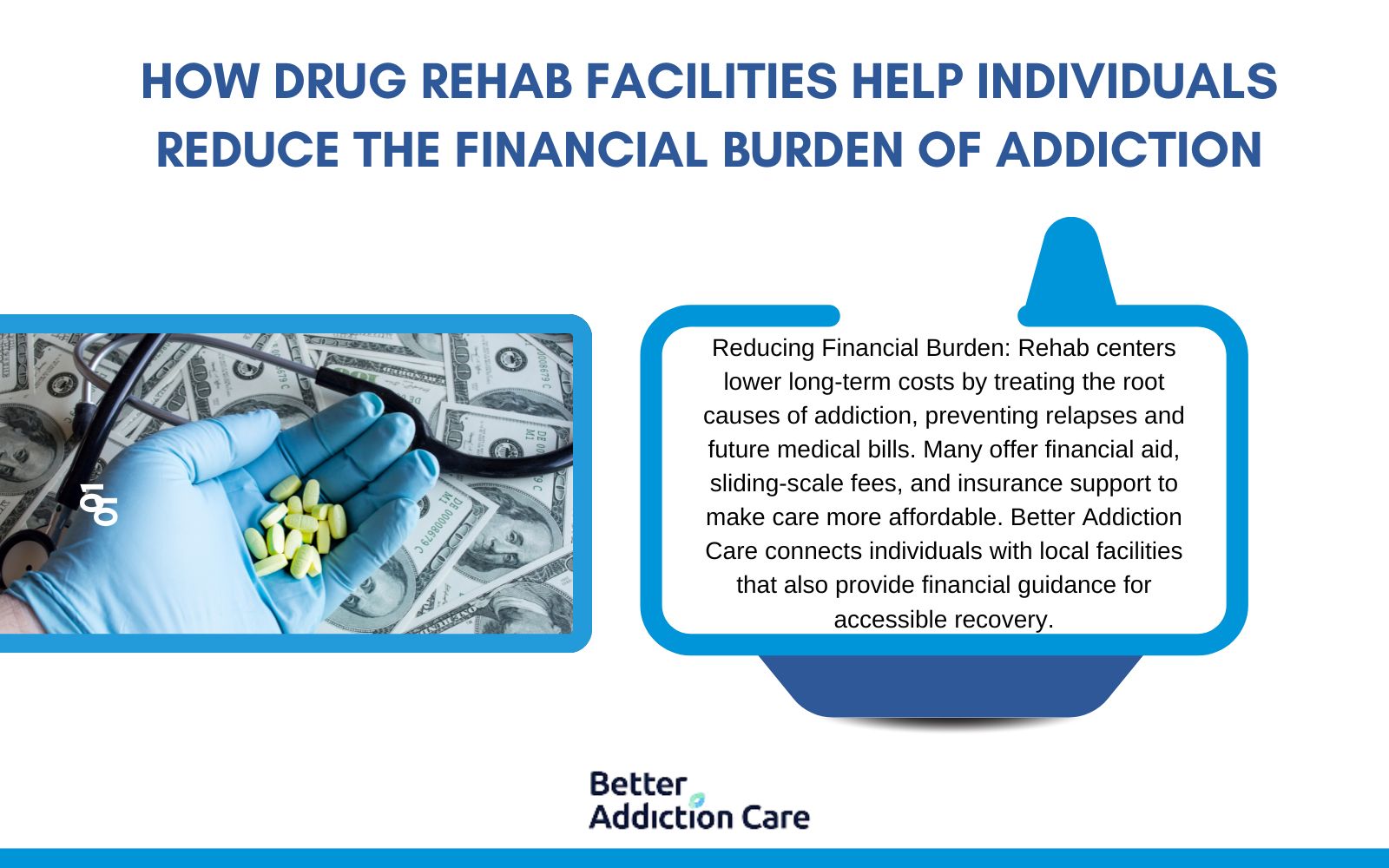
Drug rehab facilities help individuals reduce the financial burden of addiction by offering structured treatment plans that address the root causes of substance abuse, which helps prevent costly relapses and long-term health complications. Many facilities provide access to financial assistance programs, sliding-scale fees, and insurance verification services to ensure affordability for patients.
At Better Addiction Care, we connect individuals withlocal drug rehab facilities that offer comprehensive support, including financial guidance, to make recovery accessible and sustainable. These resources empower individuals to regain control of their lives without overwhelming financial strain.
